
Calls are being made to take court action over a decision by Kent and Medway health chiefs to close the acute stroke service at Margate’s QEQM Hospital in favour of a specialist unit in Ashford.
On Thursday (February 14) 14 doctors on the Joint Committee of Clinical Commissioning Groups (JCCCG) voted in favour of proposals to overhaul stroke services and implement three hyper-acute units (HASUs) across Kent and Medway. Six doctors were absent from the vote.
HASUs, with seven day/24 hour specialist staffing and equipment, will be at Darent Valley Hospital, Maidstone Hospital and William Harvey Hospital – meaning the closure of acute services at Margate’s QEQM Hospital, Medway Hospital and Tunbridge Wells Hospital. Kent & Canterbury Hospital has already had its service withdrawn due to the removal of training doctors by Health Education England in March 2017.
The JCCCG expects the hyper-acute units at Darent Valley and Maidstone to go live in March 2020 followed by the William Harvey Hospital in spring 2021.
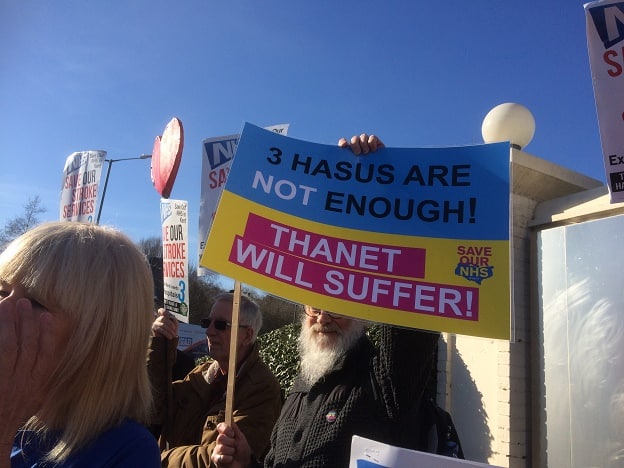
The decision comes despite a sustained campaign for more than a year by Save Our NHS in Kent, isle county councillors and many members of the public.
SONiK has been fighting for a fourth HASU at QEQM saying journey times from Thanet to Ashford take too long and will put lives at risk. The group is now urging members of the Kent County Council’s health scrutiny committee to vote to refer the decision back to government when they discuss it again on March 1.
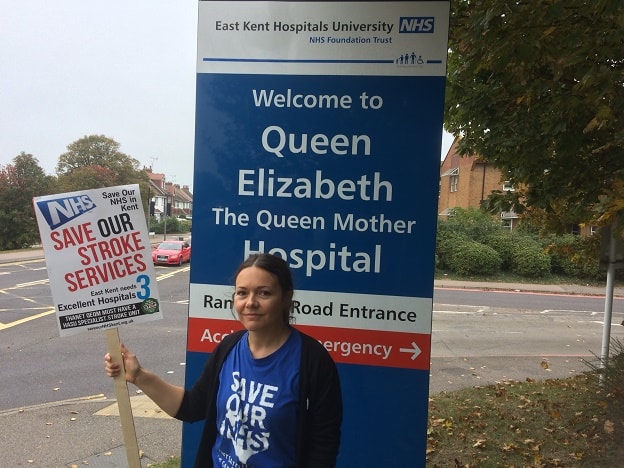
Carly Jeffrey, from SONiK, said: “SONIK is focusing all its efforts on getting Kent County Council to refer the stroke plan back to government. We hope we can persuade those on the HOSC committee of our case, which is very strong, and they will vote to take this step which will mean the plan must be independently reviewed.
“We know that Medway council look set to refer the plan back and they are also setting money aside for legal action. As a last resort, SONIK may also opt to apply for a judicial review. If that happens, we will need to fundraise quite a substantial sum, and we’re hoping that the Isle will do us proud and set up hundreds of fundraising events in all their communities.”
The call is backed by isle representatives including county councillor Karen Constantine and district councillor Lin Fairbrass.
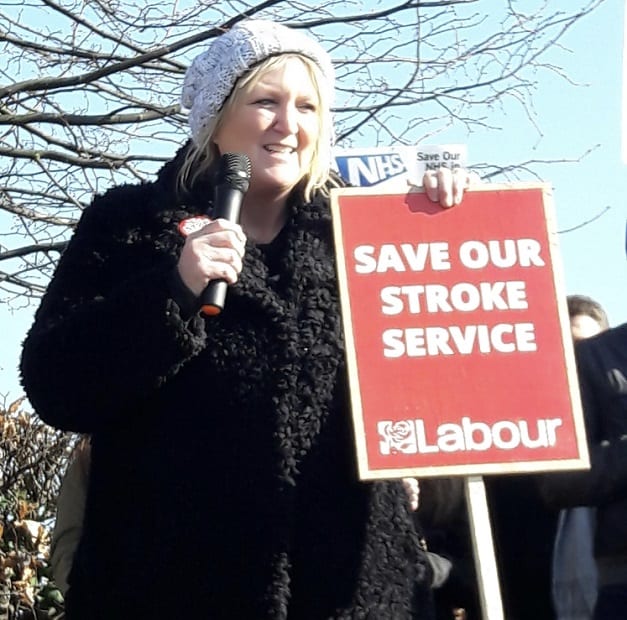
Cllr Constantine has applied to the chairperson of the HOSC to put a motion forward asking for the referral to Secretary of State for Health Matt Hancock.
The Labour councillor said: “Like many people I have been stunned by the decision taken by the JCCCG. On March 1, the Kent Health Overview and Scrutiny Committee meet in Maidstone County Hall and there is a final opportunity to refer this decision back to Matt Hancock the Secretary of State for Health.
“I have applied to the Chair of the HOSC, Cllr Sue Chandler, for permission to put this motion forward. My hope is as many of the HOSC committee members as possible will support me, and the people of Thanet, by voting to refer this decision back.
“However, it must be said some of those same councillors have already voted for this outcome. It could be extremely difficult to get them to think again and reverse their earlier decision. Notably, these are not Thanet councillors who appear to share the same concerns. “
Cllr Constantine said public response has show Thanet residents want to fight the decision.
She added: “ It’s time to come together to start a Judicial Review (a court proceeding where a judge reviews the lawfulness of a decision or action made by a public body.) This won’t be easy, but working together I believe we can do it.”
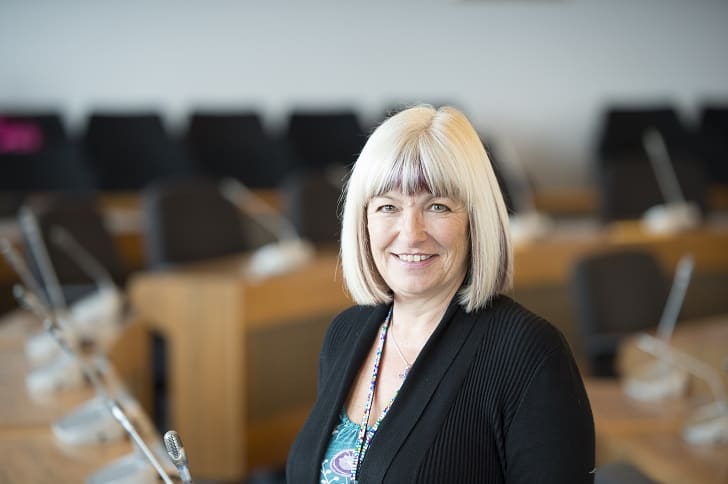
The action is also backed by UKIP district councillor Lin Fairbrass, who said: ““I have watched this situation unfold and am horrified that this decision has been reached. It’s a very poor decision for Thanet residents. If the decision isn’t reviewed and referred back then we can only pursue a Judicial Review as Medway is.”
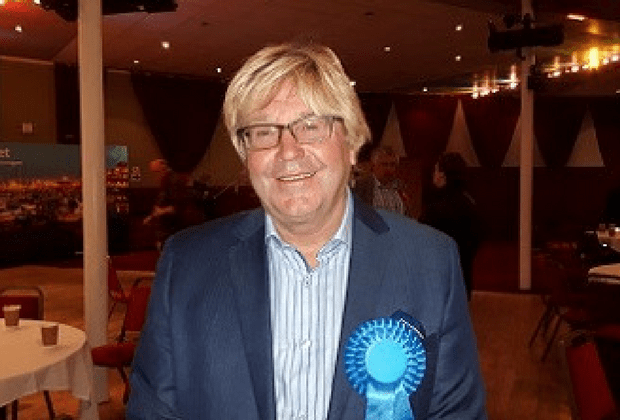
Tory county councillor Paul Messenger also backs to call for a fourth HASU at QEQM. He said: “There is no doubt that HASU stroke care is far superior to the Monday to Friday emergency stroke cover presently deployed at QEQM for the residents of Thanet, so it goes without question that I would want HASU upgraded facilities at QEQM.”
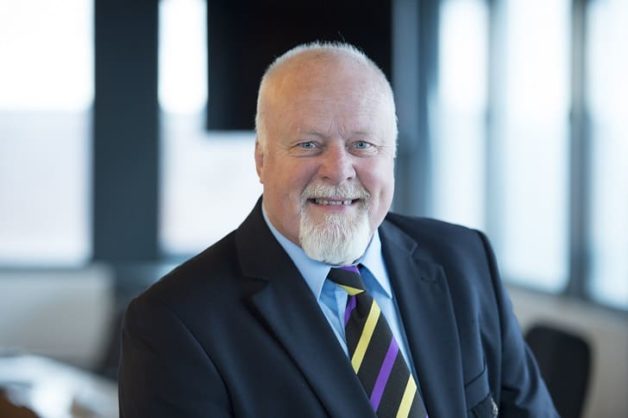
Thanet Independent Councillors leader Stuart Piper said the HASU decision was ‘poor’ but the answer may be to find a completely new way to provide specialist equipment in Thanet.
He said: “It is a poor decision and should have been better planned. They should have presented the opportunities for specialist equipment to be in each of the new planned ‘Super GPs hubs’ and ensured that there was provision locally for the emergency 2 – 4 hours. Then they could move the patient to the new site in Ashford.
“There has not been any joined up thinking on this issue. A judicial review probably would not change the outcome and I think we could make the necessary upgrades inhouse by making better use of the three new surgeries.”
Liberal Democrat Angela Curwen said all HASU locations need to be reexamined. She said: “I would back calls for a judicial review and for a fourth HASU at QEQM.
“I also think the location of all the HASUs should be reviewed as I believe other areas are also poorly served. As Canterbury councillor Ida Linfield has said, she believes using real figures it should even be 5 or 6 HASUs for the population of Kent, Medway, East Sussex and Bexley.”

In a statement, stroke consultants from each of the four hospital trusts in Kent and Medway said:“People who live further away from the proposed specialist centres are understandably worried about how long it will take them or a loved one to be transported there by ambulance. We have heard concern that stroke patients could come to harm as a result of longer travel times
“The reality is, sadly, that any stroke patient who dies within a few hours of having a stroke would almost certainly have died whether they were at home, in an ambulance or being cared for in the best stroke unit in the world. For the very small percentage of patients whose strokes are the cause of almost instant death, or who fall into a coma and never wake up, currently little can be done.
“However most people will survive their stroke, and the critical factor for them is how we can reduce their risk of dying in the following days, minimise their risk of long-term disability and therefore improve independence.
We can do that best by getting them to a specialist stroke centre where they can get clot-busting care within 30 minutes of arrival if they need it, and round-the-clock care for the vital first few days after their stroke.”
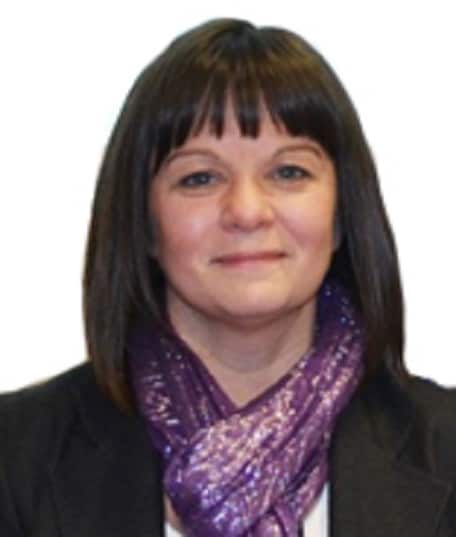
Rachel Jones, Director for the Kent and Medway Stroke Review, said: “We absolutely understand the concerns that some people have about the location of hyper acute stroke units in Kent and Medway agreed by the Joint Committee of Clinical Commissioning Groups for the Kent and Medway Review of Urgent Stroke Services.
“However, it is important to note that this work has been informed throughout by Kent and Medway’s stroke consultants and other stroke specialists, who looked at what is best for their patients, taking into account their experience, and the huge body of evidence set out by the Royal College of Physicians’ 2016 guidelines on stroke.
“As the stroke consultants said recently, the reality is, sadly, that any stroke patient who dies within a few hours of having a stroke would almost certainly have died whether they were at home, in an ambulance or being cared for in the best stroke unit in the world. For the very small percentage of patients whose strokes are the cause of almost instant death, or who fall into a coma and never wake up, currently little can be done.
“However most people will survive their stroke, and the critical factor for them is how we can reduce their risk of dying in the following days, minimise their risk of long-term disability and therefore improve independence.
“While undertaking the stroke review, we have considered the health and wellbeing of the entire population who use Kent and Medway stroke services. We have carefully considered population growth, deprivation and travel times to potential hyper acute stroke units in our review. We believe the rigorous process that we have followed and the decision we made will enable us to best meet the needs of our whole population, and save an extra life a fortnight.
“We will, of course, comply with any requirements that a judicial review or referral to the Secretary of State brings but are aware that this will have an impact on the implementation of the HASUs across Kent and Medway. Any delay to implementation will inevitably lead to more deaths and more disability than if we are able to go ahead as planned.”
Anyone interested in assisting with a ‘working panel’ process for the judicial review bid can contact [email protected]
To find out more about action from SONIK find the group on facebook here

